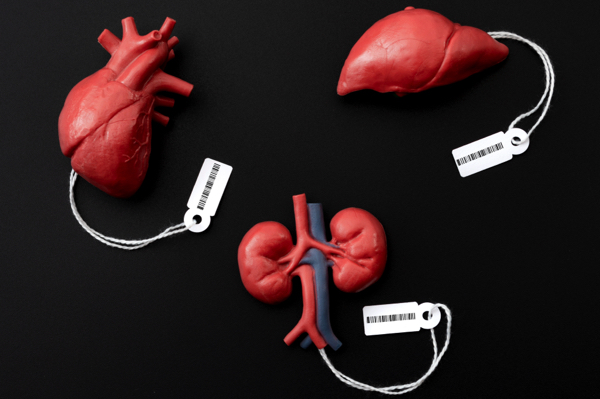HOSPITAL HOMICIDE: New study points to evidence that some COVID-19 patients were euthanized by hospitals
03/05/2024 / By Cassie B.

The early days of the pandemic were filled with panic and a lack of understanding of the disease, and it is an unfortunate fact that many patients died needlessly. However, a new study in the Medical & Clinical Research journal points to the chilling possibility that some patients may have actually been euthanized.
The paper, Excess Deaths in the United Kingdom: Midazolam and Euthanasia in the COVID-19 Pandemic, is raising some serious questions about how the UK’s National Health Service handled the disease in its early days, highlighting what appears to be a deliberate policy established by the NHS to euthanize certain groups of patients, especially those who had respiratory issues.
In the study, which has yet to be peer reviewed, researchers investigated a marked lagged correlation between patients who received the palliative sedative midazolam and COVID-19 excess mortality rates in some parts of the country.
Study author Wilson Sy noted that while the injections and excess deaths were highly correlated, the data is not synchronous because the medication does not take effect immediately. Compounding this issue is the fact that there were some lags in registering deaths as well as dosage reporting.
“The very high correlation (coefficient 91 percent) between excess deaths lagged one month after Midazolam injections is largely due to the first two enormous spikes to early 2021,” he wrote.
The author expressed concerns that the NHS may have abused palliative care policies for coronavirus patients.
He added: “New guidelines were rapidly developed in early 2020 by the National Institute for Health and Care Excellence (NICE) for managing COVID-19 symptoms, including those at the end-of-life [22]. The rapidly developed new guidelines effectively opened the door to implement a policy of euthanasia in UK during the pandemic.”
NICE said that they could not follow their usual process for developing guidance given the urgent nature of the pandemic. It instructed healthcare professionals to give patients midazolam to manage breathlessness, along with morphine.
The use of morphine and midazolam in tandem has long been considered controversial in healthcare circles because of reports of abuse in palliative care. During Hurricane Katrina, a Louisiana State University School of Medicine cancer surgeon was accused of abusing the drug combination to euthanize patients, with more than 34 people dying under the care of Dr. Anna Maria Pou under suspicious conditions.
Midazolam has also been the subject of debate over its use for lethal injections for prisoners. In Oklahoma, a prisoner shook for several minutes and vomited after being administered the sedative during his execution, and a group of death row prisoners argued in court that the mix of drugs being used could cause such a high degree of pain that it can be considered “constitutionally intolerable.”
Sy went on to add that every regional subpopulation had a positive correlation between midazolam doses and excess deaths, which means that the effect is likely causal and not due to any significant confounding factors.
“The crime of the century”
Former UK Member of Parliament Craig Kelly called this finding “the crime of the century,” posting on X: “If the data is correct, the only conclusion is that tens of thousands of elderly English were murdered with an injection of the end of life drug Midazolam. These deaths were then falsely blamed on Covid, which was the basis of the public fear campaigns used to justify the lockdowns and mass mandated injections of the public (including children) with an experimental medical intervention that had zero long term safety data.”
He points to profits as the most likely motivation, adding: “And along the way, a small group pushing the need for mass mandated injections made billions.”
Sources for this article include:
Submit a correction >>
Tagged Under:
conspiracy, covid-19, discoveries, euthanasia, evil, health care, hospital homicide, insanity, medical extremism, medical violence, midazolam, NHS, outrage, pandemic, real investigations, research, traitors, Twisted
This article may contain statements that reflect the opinion of the author
RECENT NEWS & ARTICLES
COPYRIGHT © 2017 MEDICAL VIOLENCE




















